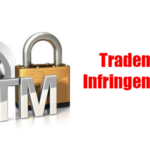Selling a small business is a significant decision that requires careful planning and execution. Finding the right buyer is crucial to ensure a successful and profitable transaction. This article will explore the key steps and strategies involved in selling your small business and attracting the ideal buyer. By following these guidelines, you can maximise the value of your business and navigate the business urgent sale with confidence.
Understanding Your Business’s Value
Before embarking on selling your small business, it’s essential to have a clear understanding of its value. Several factors contribute to determining the worth of a business, including its financial performance, assets, customer base, brand reputation, and growth potential. To accurately assess your business’s value, consider consulting with a business valuation expert or a professional accountant who can provide an objective evaluation.
Preparing Your Small Business for Sale
You must present your small business in the best possible light to attract the right buyer. Start by organising your financial records, ensuring they are accurate, up-to-date, and easily accessible. A prospective buyer will closely examine your financials, so it’s crucial to have a comprehensive understanding of your company’s financial health.
Additionally, evaluate your business’s operations, identifying areas for improvement and making any necessary adjustments. Streamlining processes, reducing costs, and enhancing overall efficiency can increase the attractiveness of your business to potential buyers.
Crafting a Compelling Business Profile
Creating a compelling business profile is a crucial step in attracting potential buyers. This profile should provide a detailed business overview, highlighting its unique selling points, competitive advantages, and growth prospects. Include vital financial data, such as revenue and profit figures, and information about your customer base and market position.
Emphasise the growth potential of your business, showcasing any untapped opportunities that a prospective buyer could capitalise on. By presenting a well-crafted and enticing business profile, you can capture the right buyer’s attention and generate interest in your small business.
Identifying Potential Buyers
Once your business is prepared for sale and you have a compelling profile, it’s time to identify potential buyers. Start by leveraging your professional network and industry connections. Confidentially reach out to individuals or companies who may have an interest in acquiring a business like yours. They could be competitors, strategic investors, or entrepreneurs looking to expand their operations.
In addition to personal contacts, consider listing your business on reputable online platforms or engaging a business broker specialising in connecting sellers with potential buyers. These avenues help you reach a wider audience and increase the chances of finding the right buyer for your small business.
Screening and Qualifying Buyers
As inquiries and potential buyers start to come in, screening and qualifying them is vital to ensure they are genuinely interested and financially capable of completing the purchase. Before sharing confidential business information with potential buyers, it is recommended to have them sign a confidentiality agreement. Evaluate their financial capabilities, previous experience, and their reasons for wanting to acquire a business.
Engage in discussions with qualified buyers to gauge their compatibility with your business’s values, culture, and long-term vision. Finding a buyer who aligns with your business’s ethos can increase the likelihood of a successful transition and preserve the legacy you’ve built.
Negotiating the Deal
Negotiating the deal is a critical phase in selling your small business. It’s essential to approach negotiations with a clear understanding of your desired outcome and a willingness to compromise on non-essential aspects. Collaborate with your legal and financial advisors to navigate the complexities of the negotiation process, ensuring that your interests are protected.
Consider not only the deal’s financial terms but also the transition period, ongoing involvement, and potential contingencies. Strive for a win-win outcome that satisfies both parties and ensures a smooth transition for your employees, customers, and stakeholders.
Closing the Sale
Once the terms of the deal are finalised, you are ready to close the sale. Collaborate closely with your legal team to ensure all necessary documentation is prepared and signed correctly. Transfer the ownership of assets, settle outstanding liabilities, and fulfil contractual obligations.
Throughout the process, maintain open lines of communication with the buyer, facilitating a smooth handover and a positive relationship beyond the sale. A successful sale should satisfy both parties and pave the way for future opportunities.
Conclusion
Selling your small business urgent sale can be complex, but with careful planning and execution, you can find the right buyer and achieve a successful outcome. By understanding your business’s value, preparing it for sale, crafting a compelling business profile, identifying potential buyers, and negotiating effectively, you can confidently navigate the selling process and maximise your small business’s value. Remember, the right buyer is out there, and by following these steps, you can attract them and secure a prosperous future for your business and yourself.








